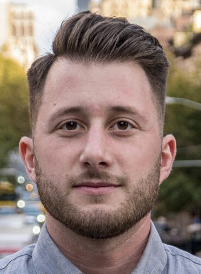Industry Insights
April 23, 2021
Rosenberg: Fixing MPN System a Humanitarian Issue
- State: California
- - 0 shares
WorkCompCentral published a blog post by workers’ compensation defense attorney Gregory Grinberg critiquing AB 1465, a bill that would expand access to medical care by creating a statewide medical provider network.

Daniel Rosenberg
Ignoring Grinberg’s ad hominem attack on Sen. Lorena Gonzalez, his argument is that MPNs lead to higher quality and reduced costs, and therefore should be maintained without free-market competition. The problem is that his points are empirically false: MPNs increase costs for employers and lead to worse medical care for their injured workers.
The California Workers’ Compensation Institute did a comprehensive study of MPNs and found that they generated a negligible 2% in savings. Those savings were more than offset by added frictional costs to the system, as a Journal of Occupational and Environmental Medicine study concluded. Worse still, a recent study by the Workers’ Compensation Insurance Rating Bureau demonstrated that delays in medical treatment, often the result of the broken MPN system, were a significant driver of downstream costs to employers. Injured workers who don’t receive treatment within the first 30 days are 40% more likely to have permanent disability awarded.
With regard to quality, there are a handful of employer-run MPNs that evaluate care — and it may be reasonable to offer protections for them — but they are extreme outliers in the system.
The sole criteria for participation in the majority of MPNs is a willingness to accept the steepest discount from the Official Medical Fee Schedule. Most MPNs do not produce or maintain metrics on the quality of clinical care delivered. Dismissal from an MPN is rarely based on quality; most often it’s related to requesting “too much” care, or a refusal to accept increasingly steeper discounts.
The California Society of Industrial Medicine and Surgery is aware of a medical practice that lodged a complaint with the Division of Workers’ Compensation against a carrier over fraudulent bill review activity. The DWC substantiated the allegation, only to have the practice immediately dropped from the carrier’s MPN without cause. Another practice had an MPN offer participation as long as the doctors refused to offer psychological treatment. Another practice had an MPN force its patients to fly across the state for medical care they could have rendered themselves, all because the MPN cut a steeper discount with another provider.
In California, vengeful retribution, poor quality care and blackmail are inherent to the MPN system. To state otherwise is to be either ignorant or cruel.
The CWCI made waves earlier this week when it published a painfully lackluster report concluding that AB1465 would result in higher costs. The analysis contained several flaws, including ignoring its own agency's prior conclusions on the subject, cited above.
Briefly, here are five reasons the CWCI report is wrong:
- It chose “time to initial treatment” as the metric for MPN health. This might tell us how quickly we splint a broken arm at an urgent care visit, but it hardly tells us that injured workers have meaningful access to care. A detailed analysis would show workers waiting months for care, surgeries taking years to complete and patients ripped from their doctors and forced to drive, or even fly, hundreds of miles for treatment. I see it every day at our practice.
- There is no reason to believe that without MPNs medical treatment will increase, since utilization review exists regardless of the injured worker's MPN. "Economic profiling” has not been demonstrated to lower (as if that’s inherently better) utilization, and it's really just a socially acceptable word for blackmail.
- Contractual discounts, which account for the majority of the savings the CWCI says will be eliminated, are achieved through contracts with payers, not with MPNs. CWCI is mixing apples and oranges. Surely payers can find ways to entice providers into offering discounts without their current Soviet-like control of the market.
- The CWCI performs no analysis on the economic externalities related to MPNs. What are the litigation costs, billing fees, disability payments and lost wages associated with an unchecked bureaucracy the size of California's MPNs? The number is staggering. To exclude its impact renders the analysis meaningless.
- The CWCI analysis on the validity of MPNs (whether they meet the access standard) is naïve. It takes the MPN listings at face value, with no critical analysis. A detailed look would reveal that MPN lists are populated by those no longer treating in the system, retired, deceased, etc. I know, because we called every pain management doctor in the state of California. We found many of the largest MPNs contain as many as 90% non-active physicians. One of the largest in the state has only seven active treaters in all of California! CWCI says it’s valid.
The CWCI opines that the DWC does not have the resources to manage a state MPN. Ironically, this is the most compelling argument in favor of a state MPN. If the DWC can’t manage a turnkey MPN comprising providers already regulated and licensed by the state, how is it managing thousands of indistinguishable, shadow MPNs, many of which are simply shell corporations with desolate P.O. boxes, and password-protected websites no one can access?
Obviously, it isn't — and has confessed as much. There is no real oversight of MPNs in California by the DWC.
These inefficiencies result in treatment delays and increased litigation, both of which make California workers' comp one of the least efficient health care delivery systems in the world. Creating a state MPN will result in decreased cost across the entire system, including for employers, who are victims of these abuses.
Grinberg chides: “... just cancel your MPN and let the applicants treat with whatever ‘doctor’ his or her attorney has a wink-nod-secret-handshake agreement.”
As if the wink-nod-secret-handshake agreement with the insurance carriers is better. I’ll also remind him that doctor doesn’t require quotation marks. We have schools and medical boards that regulate the profession.
The MPN system has grown too large and complex to review. There are thousands of MPNs, each more disorganized and broken than the last, with no way to determine which covers which injured worker, or carrier. Employers put their trust in carriers to curate networks of quality, affordable providers, but the networks have broken that trust by chasing short-term rate reductions at the expense of long-term cost savings and ethical medical care.
It’s time to allow access to care, and let the free market deliver the efficiency insurance carriers want to avoid at the expense of your premiums.
Let’s not mince words: Fixing the MPN system is a humanitarian issue. A vote for AB 1465 is a vote for efficiency and human decency.
Daniel Rosenberg is director of revenue cycle for Integrated Pain Management at IPM Medical Group and a member of the California Society of Industrial Medicine and Surgery.
Advertisements
Columns
- Kamin: State Senate Committee to Consider SIBTF Bill 07/07/25
- Anders: Self vs. Professional MSA Administration: Which Is Right for the Injured Worker? 06/30/25
- Geaney: Court Affirms Finding of Police Officer's Joint Employment 06/27/25
- Fricker: A New Era for Comp Subrogation 06/25/25
- Kamin: AI for HR Equals Bad Injury Reporting 06/20/25
- Montgomery: Will DWC Ignore New Law? 06/18/25
- Kamin: 4th DCA Clarifies DOI From Date of Knowledge 06/16/25
- Wade: Are the Old Ways Gone? 06/13/25
- Snyder: Trust Your Intuition 06/12/25
- Montgomery: DIR Director Reportedly Resigning 06/11/25
- Gelman: Supreme Court to Review COVID Compensability 06/06/25
- Paduda: WCRI's New Studies 06/05/25
- Moore: 187 Pages of WCRI State Stats 06/02/25
- Paduda: The Gutting of NIOSH 05/30/25
- CAAA: Left in the Smoke 05/28/25
- Gelman: Intentional Wrong? 05/27/25
- Wroten: State's Workers' Comp Crisis a Stark Contrast to National Stability 05/23/25
- Montgomery: Comp Is a Cash Cow, but Insurers Want Higher Rates 05/21/25
- Snyder: Credible Negotiation 05/19/25
- Paduda: The State of Work Comp 05/16/25
Now Trending
- Workers' Compensation News
-
Calif. Paul
Randall Implicated in $270 Million
Scam Targeting…
Posted on Jul 1, 2025Brian Allen says: “How in the world can Randall ever get a license to open…”
-
Calif. WCIRB
Estimates $1.3B Underwriting Loss
for…
Posted on Jul 2, 2025
-
N.Y. Another
Lawsuit Alleges Widespread Scheme
to Stage…
Posted on Jul 2, 2025
-
Calif. Private
Self-Insured Frequency Drops; Paid
and Incurred Losses…
Posted on Jul 3, 2025Tom Martin says: “When will we see a study examining the effect of denied and…”
-
Calif. DWC Updates
Fee Schedule, Treatment…
Posted on Jul 7, 2025
-
N.M. High Court
Invalidates Cap on Attorney Fees in…
Posted on Jul 8, 2025
-
Calif. P&T
Committee Meets July…
Posted on Jul 7, 2025
-
Neb. Auditor Says
State Paid $18,900 in SIF Benefits
to Deceased…
Posted on Jul 1, 2025
-
N.J. Legislature
Unanimously Passes Bill to Require
Counseling for First…
Posted on Jul 1, 2025
-
Texas Ex-Police
Officer's Deficient Briefing
Compels Court to Uphold Dismissal
of…
Posted on Jul 3, 2025
Jobs
- Associate Attorney
- Workers' Compensation Claims Adjuster, Senior ľ Remote ľ California
- Nurse Case Manager - Workers' Compensation
- Associate Attorney
- Associate Attorney
- Senior Attorney/Assistant Attorney 1/2/3 (NY HELPS) WCB Item #8000
- Compensation Claims Referee, SG-28 (NY HELPS) WCB Item# 4218 Workers' Compensation Jobs
Upcoming Events
Sep 2-4, 2025
San Diego Elevate Workers' Com
We are thrilled to announce that Early Bird registration is OPEN for ELEVATE« 2025! This year's …
Social Media Links
c/o Business Insurance Holdings, Inc.
Greenwich, CT 06836




No Comments
Log in to post a comment